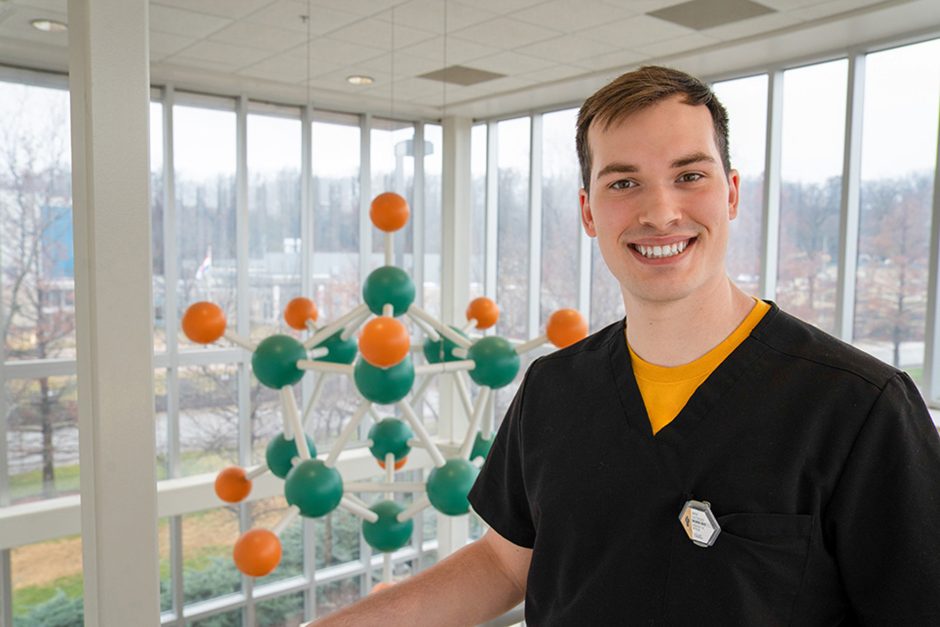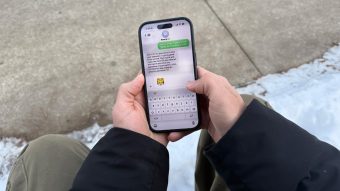
May 23, 2024
Broc Chitwood will never forget the utter confusion of lying beneath a pile of football players and wondering why he couldn’t tell his left from his right shoulder.
During a St. James High School varsity game, Chitwood dove over the line of scrimmage during a crucial defensive stop and sacked the opposing team’s quarterback. Chitwood said the quarterback and several other players fell on top of him and ended up tearing both of his rotator cuffs.
While the play ended Chitwood’s football career, it also introduced him to potential career paths. During a visit with Patrick Smith at Columbia Orthopaedic Group, Chitwood was fascinated by the CT scans of his injured shoulders.
“Dr. Smith went through all the images with me,” Chitwood said. “Even though it’s not cool that it happened to me, the injury definitely inspired me to pursue a career in health care and [helped me to] recognize the importance of imaging.”
Those seeds were planted and eventually led Chitwood to study health sciences at the University of Missouri.
After graduating with his Bachelor of Health Science in Clinical and Diagnostic Sciences — with an emphasis in nuclear medicine — in spring 2023, Chitwood began planning for his future. In hopes of securing research experience before eventually applying to medical school, he began a full-time position with Mizzou’s Molecular Imaging and Theranostics Center (MITC).
As an imaging technologist at the MITC, Chitwood spends his days collaborating with researchers on the leading edge of cancer care. He leverages his nuclear medicine expertise to help with imaging studies focused on various forms of cancer. Specifically, he conducts imaging to see whether medications containing radioisotopes produced at the MU Research Reactor are working as intended on mice carrying certain types of cancers.
“This is how new drugs come to the forefront and start being tested in clinical trials,” Chitwood said. “I don’t know anybody else from my class who has had this opportunity. We might hear about the groundbreaking drugs being invented, but not everyone gets to see this side of how they come to be.”
Chitwood said his time in the Mizzou College of Health Sciences prepared him for his current position by providing him with endless opportunities for hands-on learning. By being able to work in clinics and interact with practitioners, he said he felt equipped for life after his undergraduate years. Ultimately, he would like to use his expertise in nuclear medicine while also working more closely with patients.
For now, he is happy to be working in a growing field and gaining invaluable experience on the cutting edge of health care. Although he doesn’t have fond memories of lying on the turf with a pair of torn rotator cuffs, Chitwood is still grateful for the way it opened his eyes to a rewarding career.
“That terrible injury really is what started me on this path,” he said. “I don’t know that I would be where I am today if not for that experience.”
Read more from the College of Health Sciences


